Become a member
The Alta Parking Issue Response
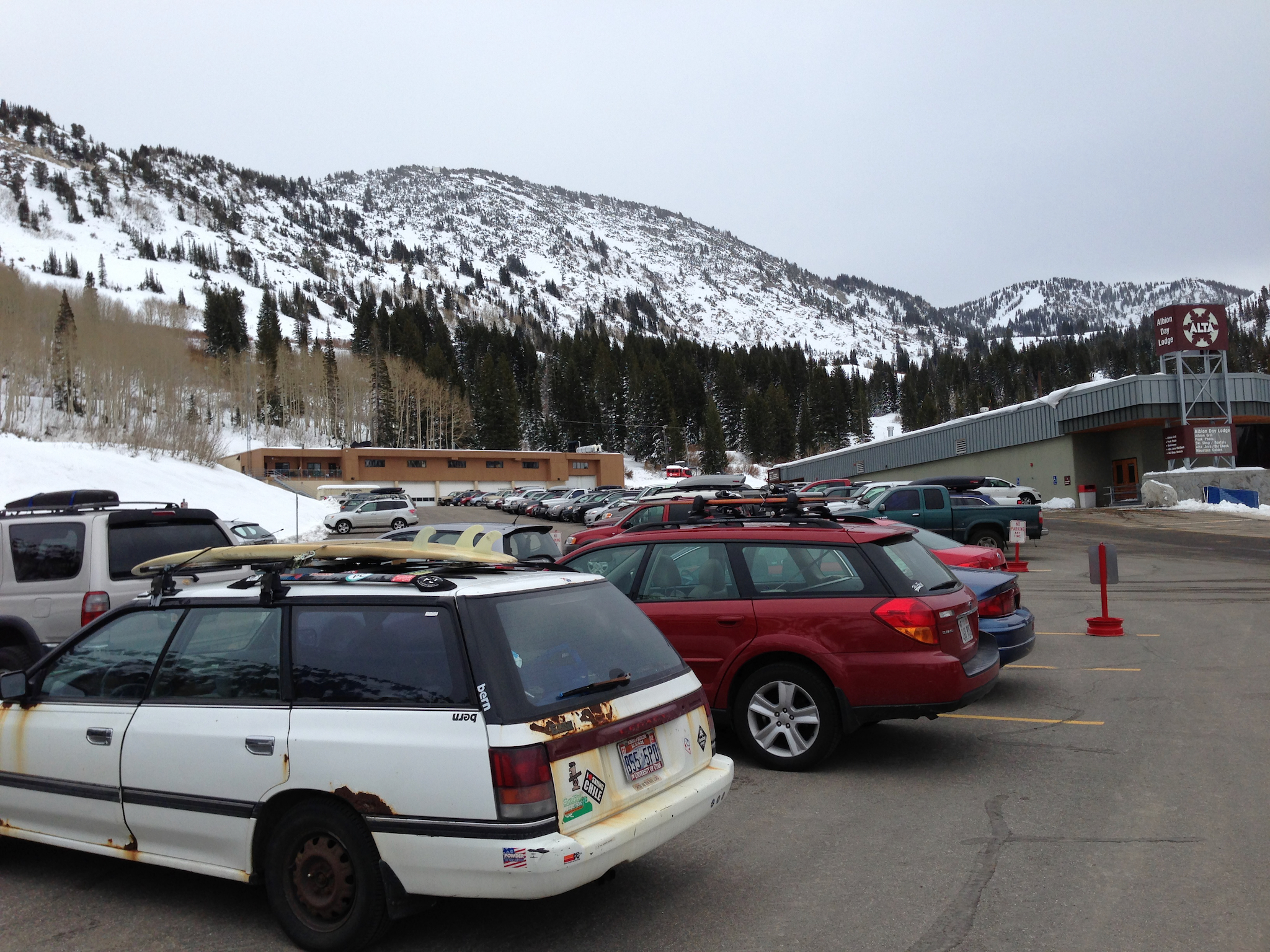
As anyone who has visited a Central Wasatch trailhead in the winter or summer in recent years can tell you, there are more people recreating than ever. Parking areas are routinely filled to capacity and cars are parked along the road almost every weekend, while trails are busier every year. Beyond the Central Wasatch, crowding in destinations such as Moab and Springdale, gateways to Arches and Zion National Parks respectively, continues to be a growing problem, leading to building moratoriums in Moab and talk about reservation systems to visit our national parks.
This crowding and heavy use is happening in our beloved Tri-canyon areas too. Long lines of cars are often backed up as they try to enter Big and Little Cottonwood Canyons on almost every winter weekend morning and midweek powder days. Similarly, traffic and parking issues have been an issue in the Town of Alta (the Town) for a long time, but lately it’s been getting acute. In recent years, WBA has engaged in many discussions with the Town, the US Forest Service (USFS) and Alta Ski Lifts (ASL) about ways to best address some of these issues. We have had many positive discussions regarding this situation and ways that it might be addressed. Unfortunately, the blog post by ASL on March 6th about the parking issues on lands in their Special Use Permit (SUP) has misleading and inaccurate statements that make it appear that WBA is resistant to all suggestions by ASL with regard to parking and even trying to undermine the process. This could not be further from the truth, so WBA wants to address some of the items in the post to make sure the facts are clear:
- ASL’s claim of 200+ lost parking spots to non-resort patrons is not based on any quantifiable, scientific data. ASL often cites the loss of 200+ parking spots to non-ski area patrons, a group that includes anyone who is not actively using the ski area, such as cabin owners, nordic skiers, sledders, families walking on the Summer Road, and yes, backcountry users (including those who may ski both at ASL and the nearby backcountry on the same day). WBA and other groups have repeatedly taken issue with this completely unscientific number that ASL often refers to. The reason is that this number is derived by ASL employees simply observing and counting vehicles in the Grizzly Gulch and Flagstaff (the area between the Alta Lodge and Rustler Lodge on the south side of Hwy 210) parking areas. The employees do not interact with the car occupants to find out if they are skiing the resort (either at that time or later in the day) and simply assume that every car parked in the Grizzly Gulch and Flagstaff parking areas are people not visiting the ski area, thereby being a non-ski area user who is “taking” a spot from an ASL patron.
WBA has offered to supply volunteers to join ASL employees in specifically counting cars and engaging the occupants on their plans on predictably popular days, but ASL has not accepted this offer as of yet.
- WBA, the Town and USFS never formally or informally agreed to any parking solution offered by ASL. The blog post states that “In June of 2020, [the Town, WBA and USFS] verbally agreed that the least socially disruptive solution would be to allow the ski area to add parking to replace the parking spaces being used by non-ski area visitors within the special use permit.” This is misleading as there was never any agreement about adding parking. At the June 2020 meeting, ASL proposed expanding only the Flagstaff parking area on a short-term basis to help address the parking issues. It was agreed that this would be a short-term solution as everyone expects that the Flagstaff location will later be used as the terminus for the long-term transportation solution to ultimately be implemented by UDOT. WBA, the Town and USFS all said they would be willing to consider this proposal once ASL did some engineering studies and submitted more details on this proposal. ASL would make it sound like there was a deal in place, but this is not accurate.
- ASL’s parking proposals have not accurately represented discussions with WBA representatives.The proposal that ASL came back with was not consistent with what had been discussed – rather than expand only the Flagstaff parking area, ASL’s proposal showed expansion in the Flagstaff parking area, plus they proposed adding considerably to the Wildcat lot as well as the Grizzly Gulch parking area. These additions would be permanent parking rather than a short-term solution like the one originally suggested for Flagstaff. This was far beyond what had been discussed at the earlier meetings. WBA made it clear that this proposal could not be supported, but that we would still be willing to consider expanding just the Flagstaff parking area.
- WBA has never supported any permanent, long-term parking expansion.The Alta blog post goes on to state that “Recently, resistance to adding more parking in the canyon from members of the Alta Town Council and Mayor, coupled with resistance from the Wasatch Backcountry Alliance regarding the proposed location of ASL’s parking modifications have seemed to influence the Forest Service’s support for adding additional parking.” Again, this is an inaccurate, misleading statement of what occurred. As mentioned above, WBA was clear in every discussion that we would only consider a short-term parking expansion to the Flagstaff parking area to support both backcountry and resort parking; we never supported any permanent, long-term expansion to the other parking areas. Further, WBA did not tell USFS what to do or not to do and they reached their own decision. WBA suspects that it was ASL’s “bait and switch” in terms of what was initially discussed versus what ASL actually proposed that caused USFS to reject any parking expansion at all.
As we have made clear for years, WBA does not think that adding more cars to LCC will lead to anything other than more congestion, frustration and pollution. We oppose ASL limiting their parking to paid ski resort patrons only – not only does this exclude those not paying for skiing the resort that day from accessing their public lands, it also seems ripe for problems/confusion as to who can actually park there. We have worked with ASL on solutions for years, and have made a number of suggestions that they have rejected, including implementing a paid-parking system similar to Solitude’s plan, which could create additional revenue for the ski area, or a parking reservation system as Snowbird has initiated this season. Both of these solutions would likely change people’s driving behavior, thereby leading to fewer cars in the canyon and less issues with parking
Even if 200 spots were added to ASL’s SUP, there will unquestionably be numerous days each season when not every person will be able to park in the Town or ASL parking areas. Unfortunately, like Moab and Springdale, this is the new reality of where we live and recreate. ASL is unwilling to acknowledge or accept this reality; instead ASL wants to blame a small user group who is “taking their parking” for the fact that not every person can find a parking spot every day. We find it unfortunate that ASL refuses to consider reasonable parking solutions, and instead continually insists that its limitations are the fault of a small group of people who simply want to visit their public and/or private lands.
Given the decision of USFS to not support any parking expansion, WBA will continue to work with UDOT, the Central Wasatch Commission, ASL, the Town of Alta, USFS and other stakeholders on the parking/congestion issues in LCC. However, we remain steadfast that these uses must not infringe on people’s ability to access our public lands.
We welcome your thoughts on this issue – you can send your comments to info@wasatchbackcountryalliance.org. Please also let Alta Ski Lifts know your thoughts by sending them an email at info@alta.com.
Join the WBA newsletter for Central Wasatch backcountry events and news.
More articles
-
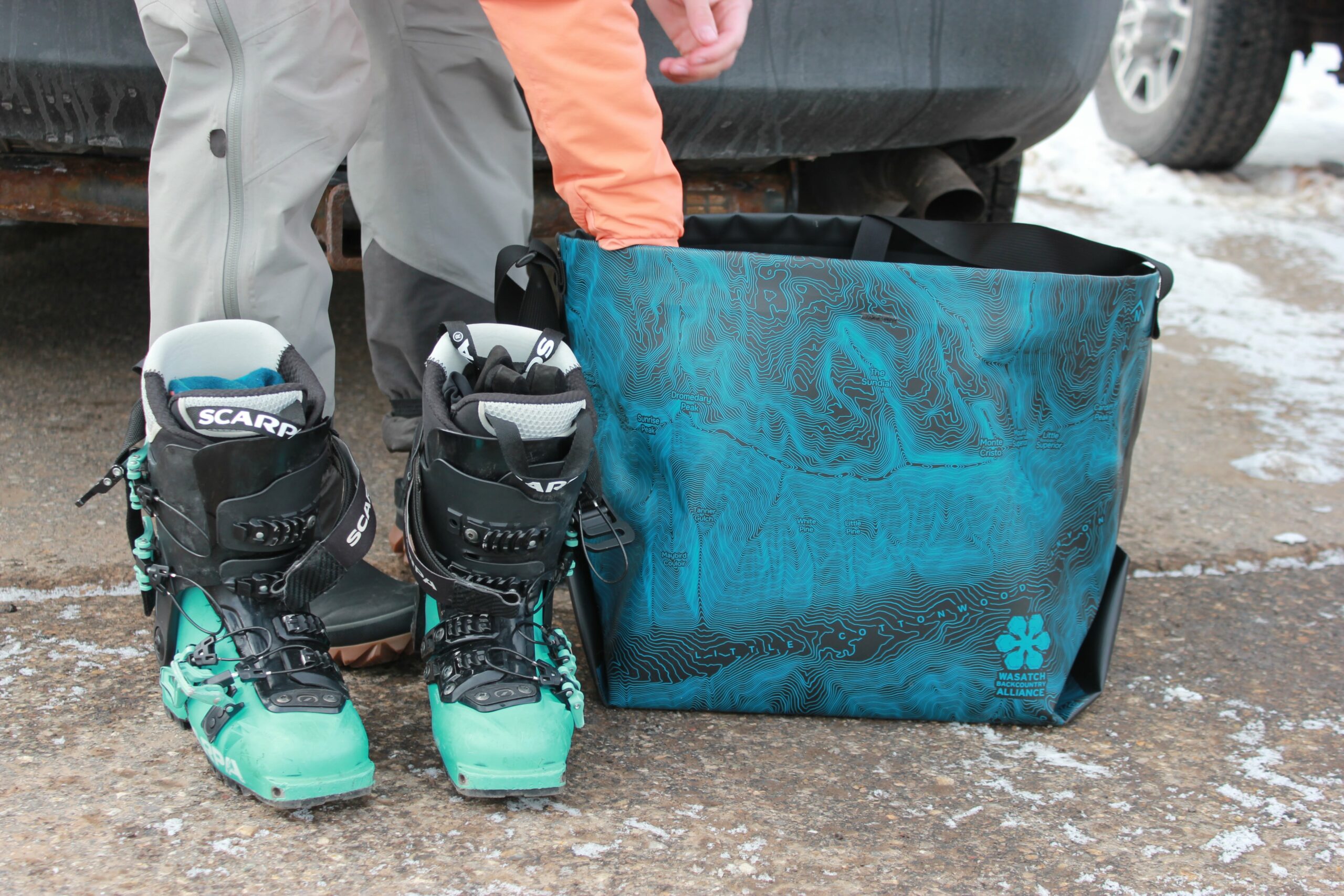
WBA x eqpd GearBuckets
We are stoked to introduce the eqpd gear Wasatch Backcountry Alliance GearBucket! Stamped with the Little Cottonwood Canyon topo map, the GearBucket combines the usefulness…
-
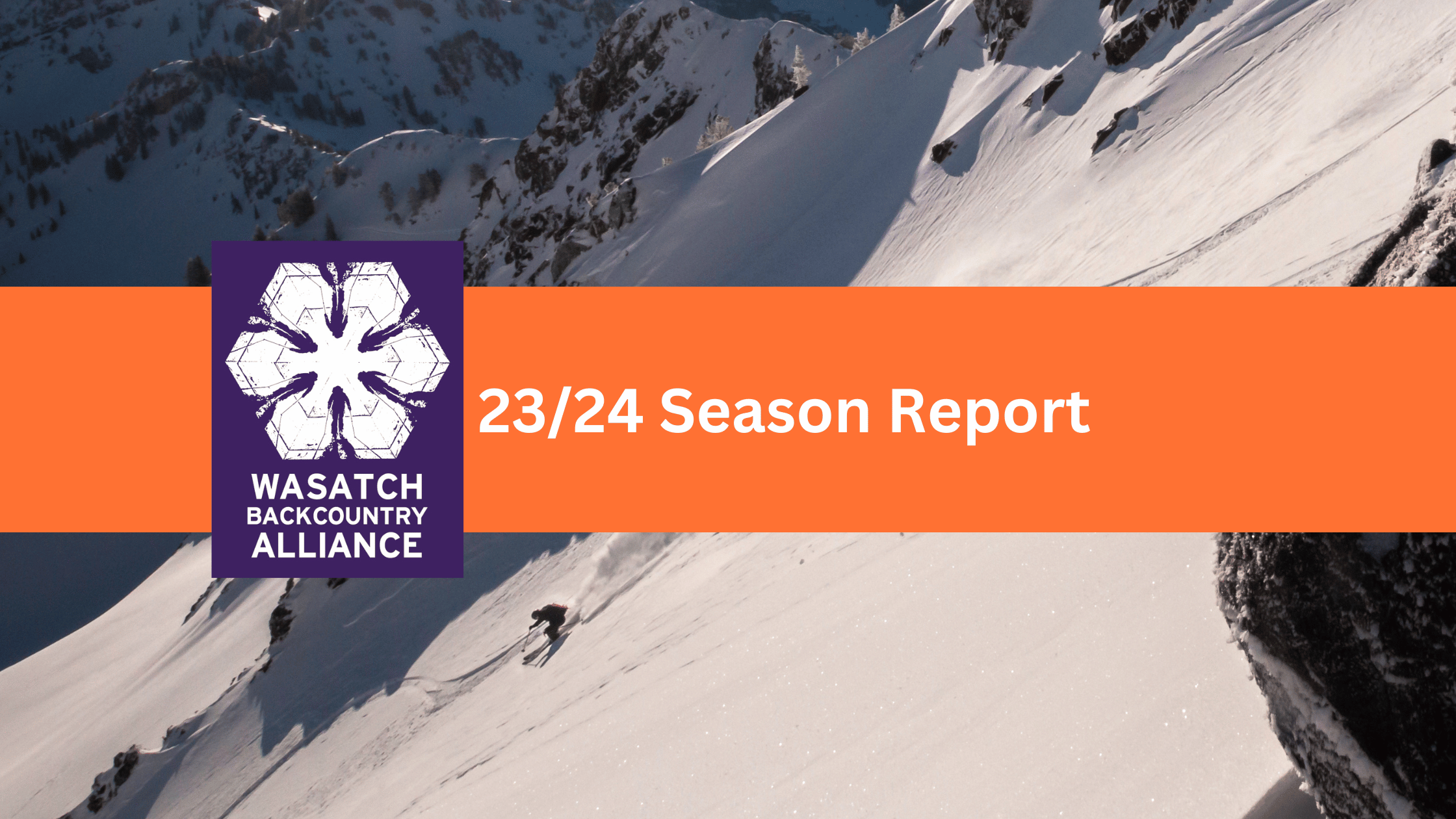
23/24 Season Report
Wasatch Backcountry Alliance published our first-ever season report from the 23/24 winter! For the past 10 years, WBA has been run by a volunteer board…
-
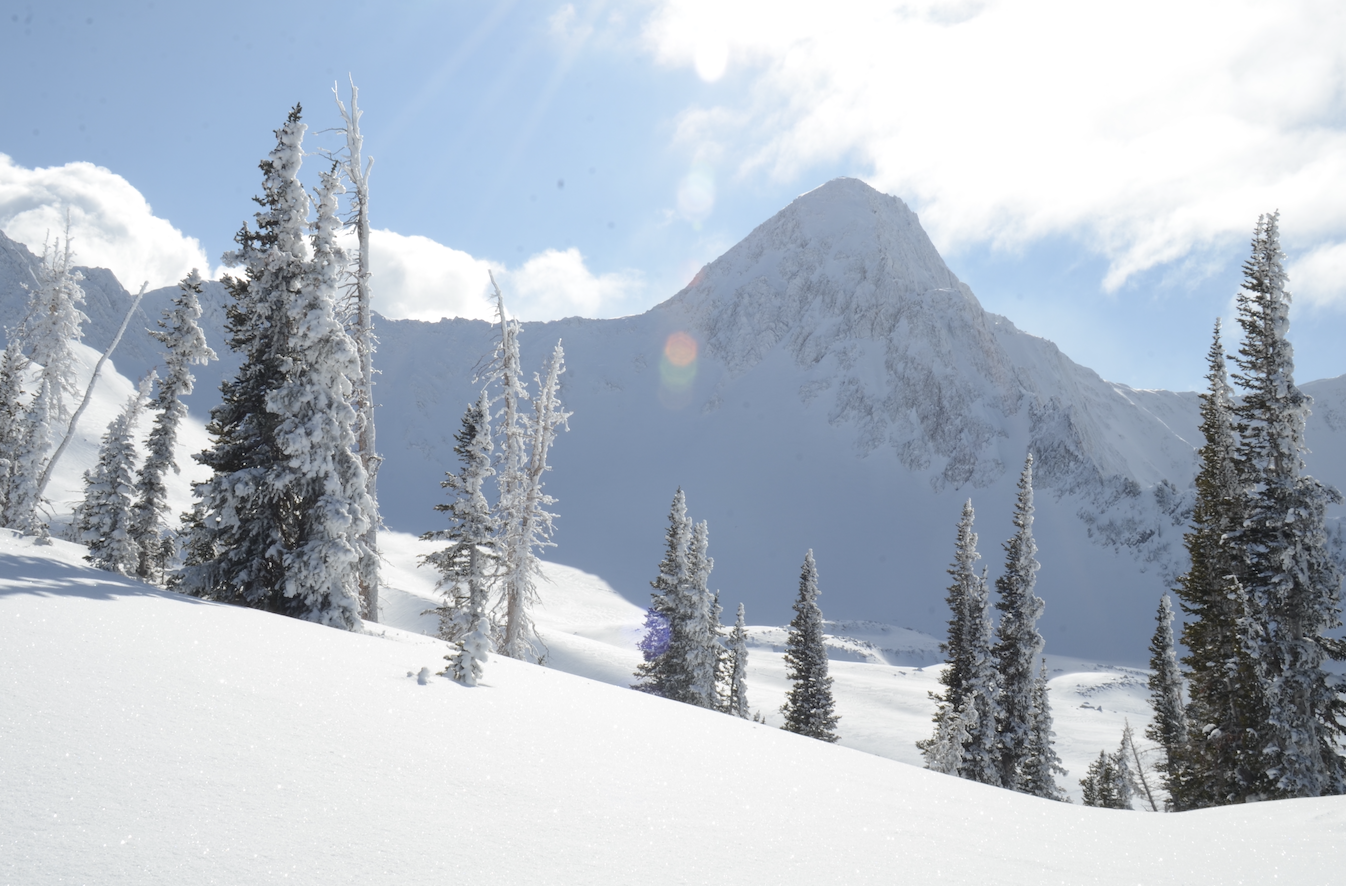
Cheers to the Wasatch!
Let’s make a lasting impact together! A note from our Director, Dani Poirier Like many of you, the Wasatch is where I learned to backcountry…
-
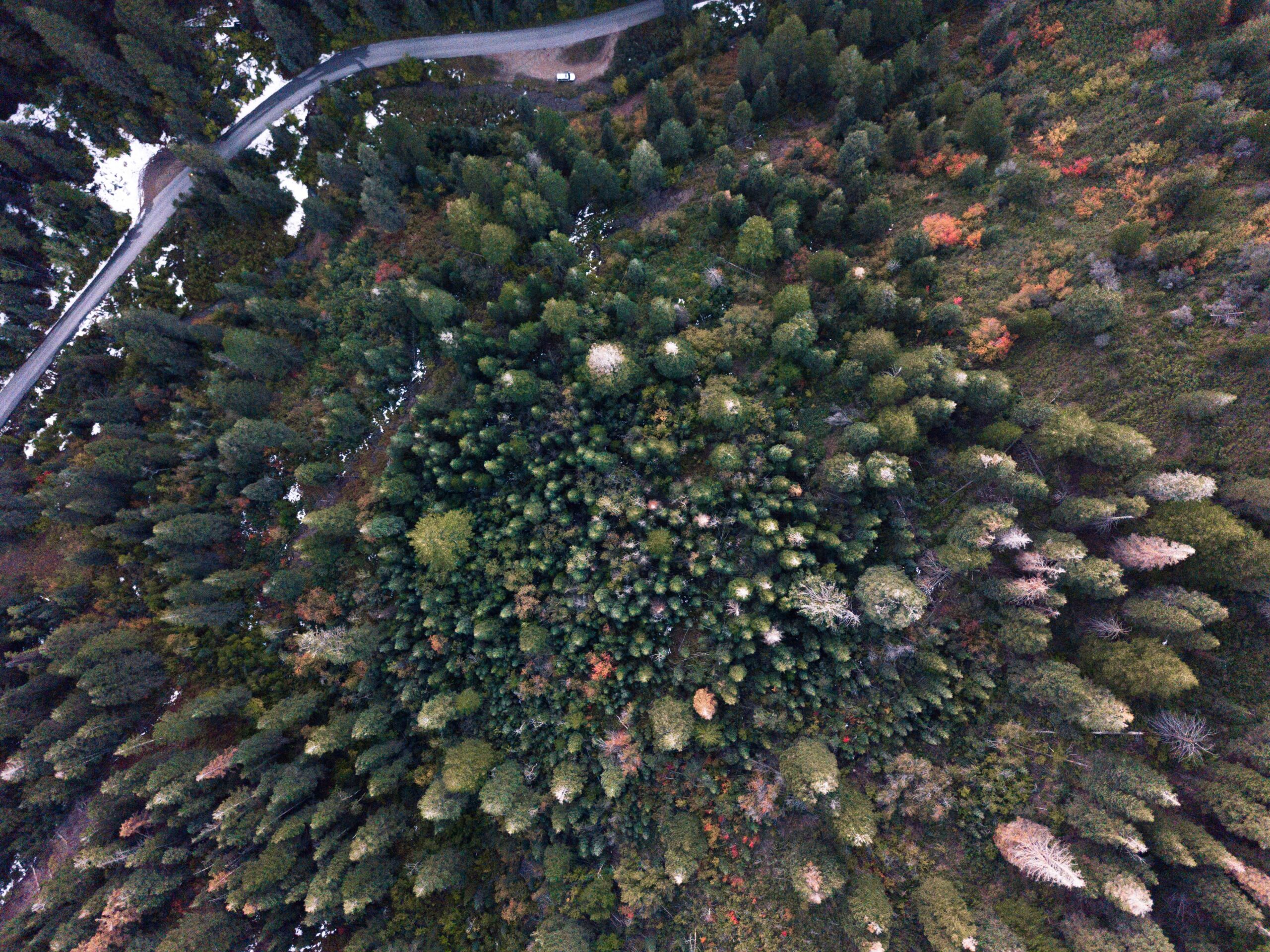
UPDATED- Comment Period: Upper Mill Creek Canyon
03/29/2024 Update You may remember that the Forest Service, Salt Lake County, and Federal Highways have been working on a plan to rebuild the Mill…